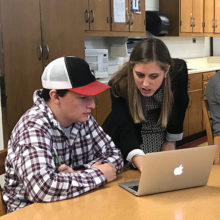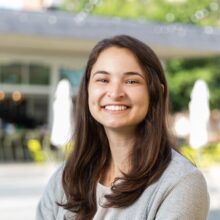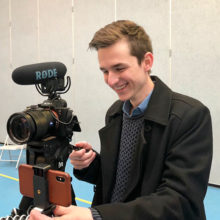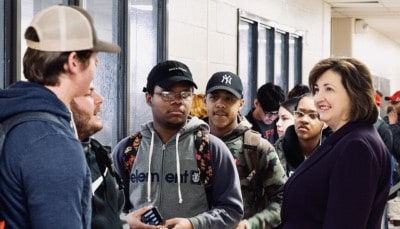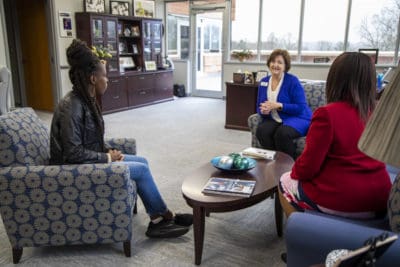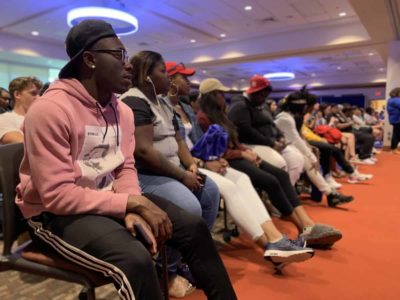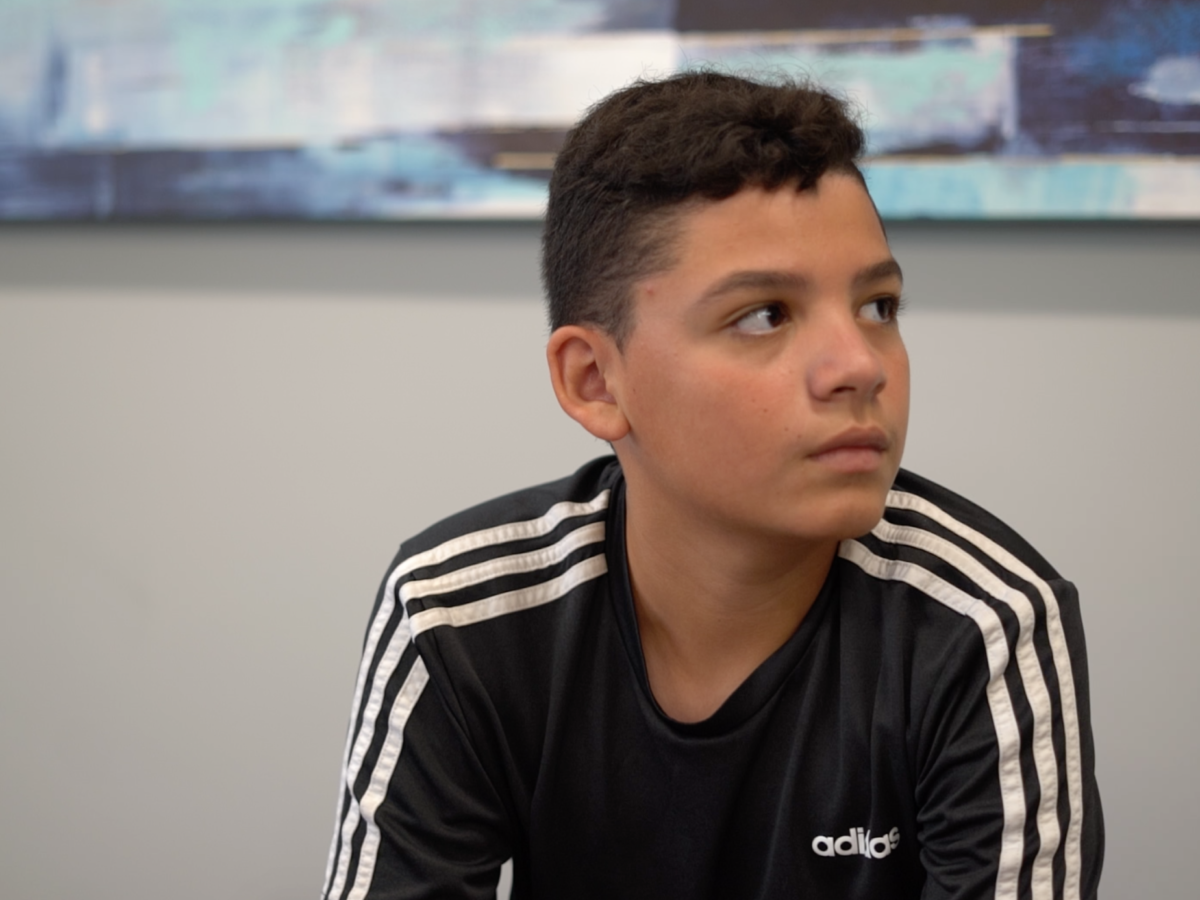
This article is part of the Solution Seekers series. Find the full series here.
In 2015, Harvard economists Raj Chetty and Nathaniel Hendren published a paper examining the impacts of neighborhoods on intergenerational mobility. They found that Forsyth County was the hardest place to escape childhood poverty in the country, with the exception of a few Native American reservations.
Logan Philon first saw this data when he was a senior in college. “I actually wept when I was sitting there at my table because I just couldn’t believe it,” he said.
Throughout college, Philon led several service-oriented projects in Winston-Salem. He realized that while valuable, these projects did not address the root causes of poverty in the area.
“In effect, we had been meeting needs,” he said, “but we had not been fundamentally altering the landscape. And we decided that that’s what we wanted to do moving forward.”
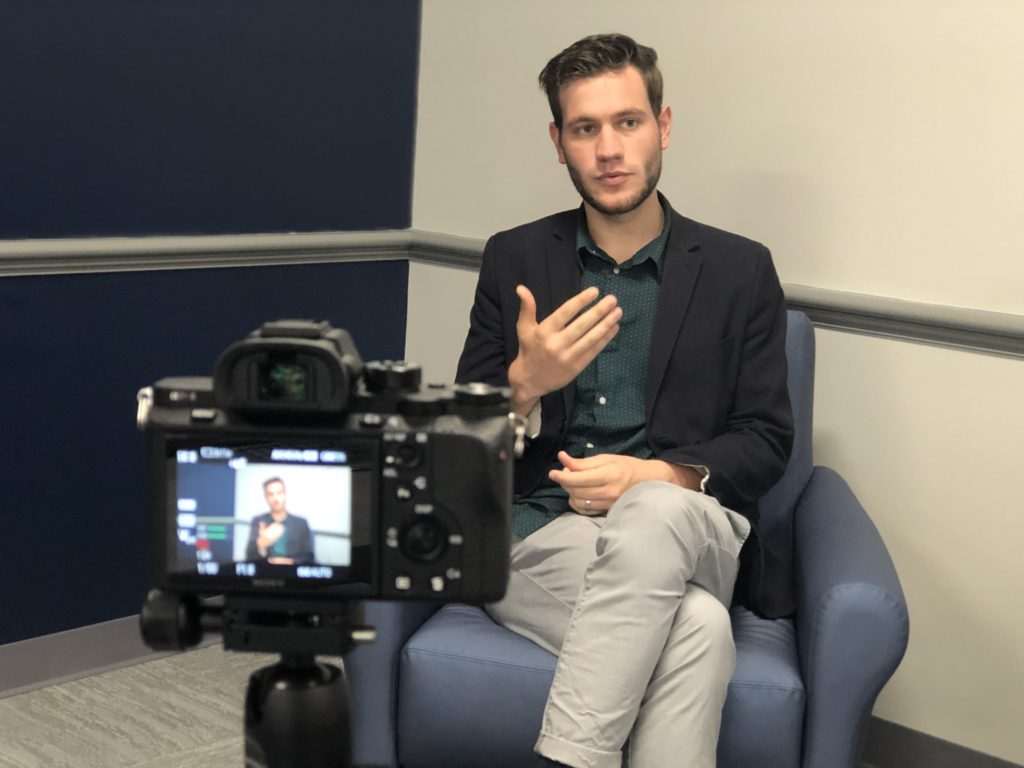
Philon formed the nonprofit Piedmont Renewal Network and set out to find the best practices to address the lack of social mobility in Forsyth County. Research led them to an effort called the Neighborhood Academic Initiative (NAI) at the University of Southern California.
An intense college preparation program, NAI provides afterschool tutoring, Saturday school, family counseling, and more for around 1,000 sixth through 12th grade students in South and East Los Angeles. Students and families must commit to seven years in the program. If they stick with it, they can get a full ride to the University of Southern California. According to NAI’s website, over 1,000 students have completed the program with 83% enrolling as freshman at four-year universities.
“They’ve been doing it for 30 years with massive success,” Philon said. “So as we started leaning in to see what they were doing to get it right, we fell in love with their model and decided to adapt it here in Winston-Salem.”
Their first cohort of eight sixth grade students started the program, called the College Lift Initiative, in 2017. The next year, they grew to 35 students. They now have 80 students participating in the program.
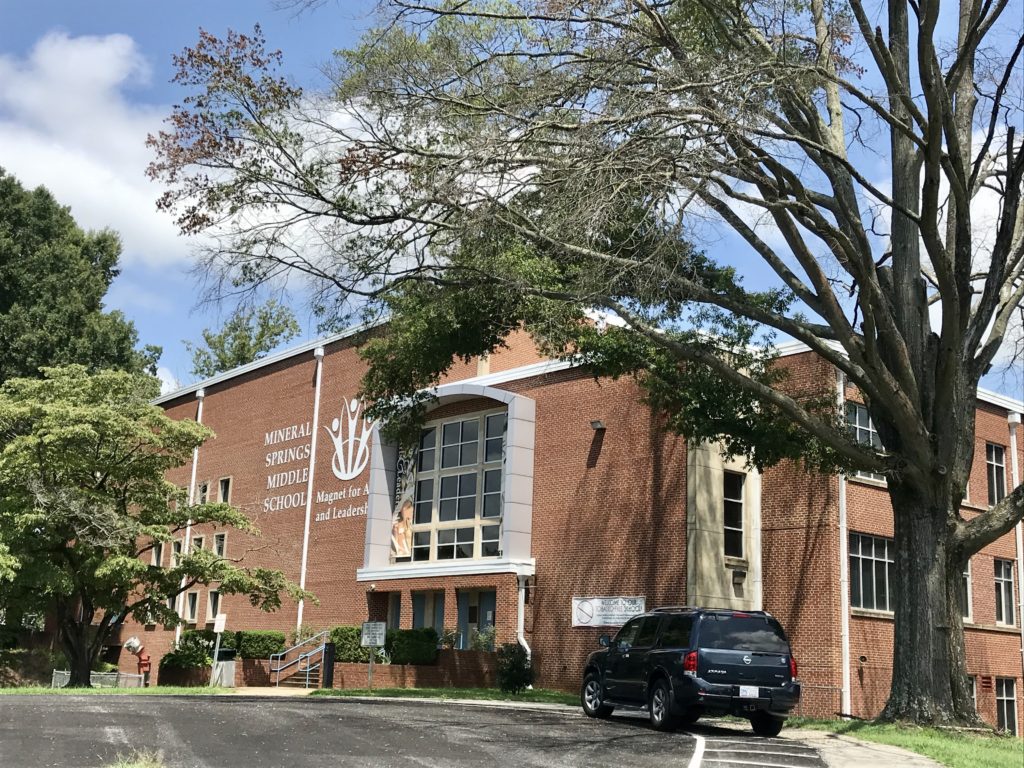
A look at the College Lift Initiative
Replicating a successful initiative, especially one as intensive as NAI, is not easy. Philon and his team worked with NAI to adapt the model to fit the local context in Winston-Salem.
NAI has several components that, when combined, build a college-going culture and expectation, Philon said. The NAI model includes heavy academic support in the form of Saturday school, after-school tutoring, and summer programming; psychological and emotional support from trained counselors; and parental support through their Family Development Institute.
“So what they’re doing is they’re throwing everything but the kitchen sink at the child,” Philon said. “It’s more than the sum of the parts.”
When adapting this model to Winston-Salem, Philon and his team decided to introduce one component per semester. They started in 2017 with the Weekend Academy (Saturday school), then added the parent program the next semester. They continued, adding the after-school tutoring, the psychological and emotional services, and finally the summer programming.
To participate in the program, students must commit to attending Weekend Academy every Saturday, and parents must commit to attending the biweekly Family Accompaniment program. Weekend Academy is essentially an extra day of school that runs from 7:30 a.m to 2:30 p.m, according to Philon. Students receive instruction in core subjects like math, English, and science as well as college preparation and various electives.
Students who need extra support also receive after-school tutoring. With tutoring, some students are getting an additional 12 hours of academic support a week, Philon said. Teachers come from schools all over Winston-Salem, and tutors include college students from the area.
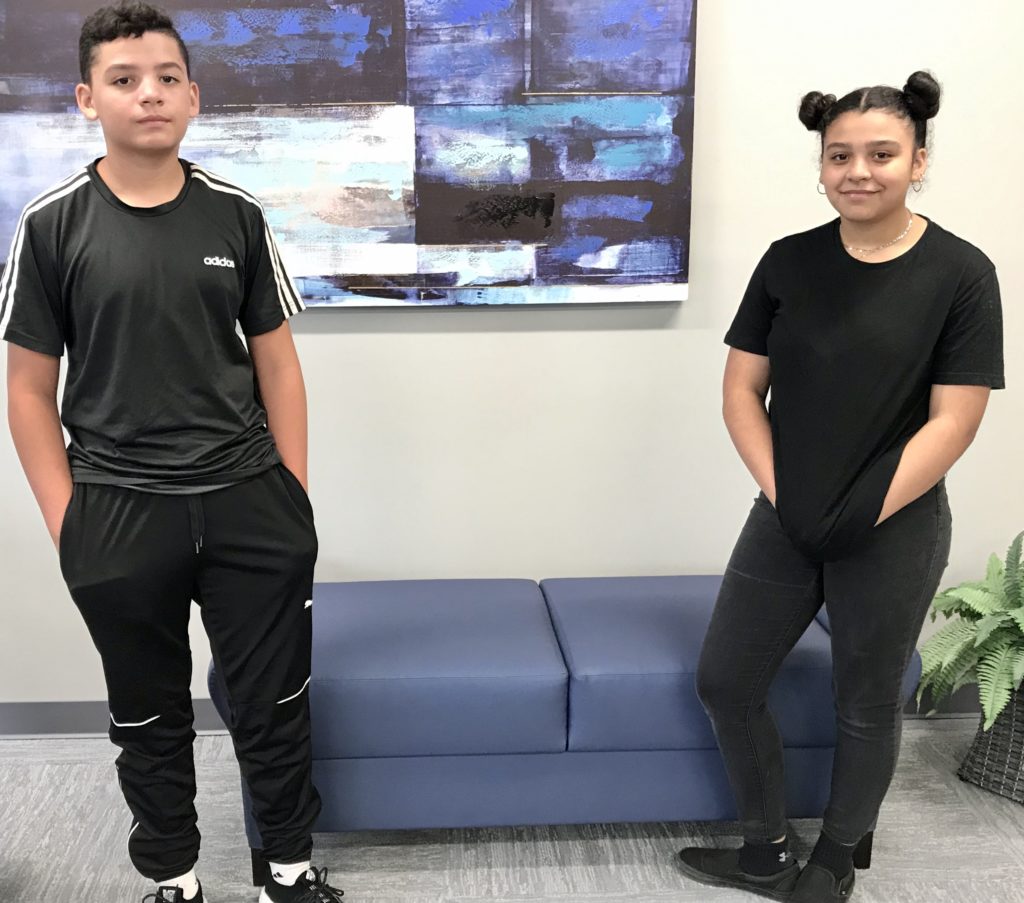
The Family Accompaniment program “is designed not only to boost caretaker involvement in their scholar’s academics, but also to lower educational barriers in the home through soft skills training and domestic support,” according to their website. The College Lift Initiative (CLI) followed the NAI model that asks parents what support they need and facilitates that support.
Both Weekend Academy and the Family Accompaniment program are huge time commitments. Families are committing to showing up after school and on Saturdays for seven years. Why do students and families make these commitments?
Students who complete the program and gain acceptance at partner institutions can attend tuition-free. Currently, CLI has partnership agreements with Forsyth Technical Community College, Winston-Salem State University, Piedmont International University, and Salem College.
Siblings Gustavo and Angela Hernandez both attend the program. Their mom signed them up when she heard they could get their college paid for through the program.
Finding a home at Forsyth Tech
Philon and his team started CLI as a nonprofit rather than housing it at a university like NAI. Philon wanted to pursue partnerships with as many higher education institutions as possible, including Forsyth Tech.
A month after President Janet Spriggs started her new role at Forsyth Tech, she signed a partnership agreement with CLI to provide 25 scholarships each year for graduates of the program. A year ago, CLI moved the Weekend Academy to Forsyth Tech as they outgrew their former space.
As Spriggs and Philon got to know each other through their partnership, they realized they could permanently house the program at Forsyth Tech.
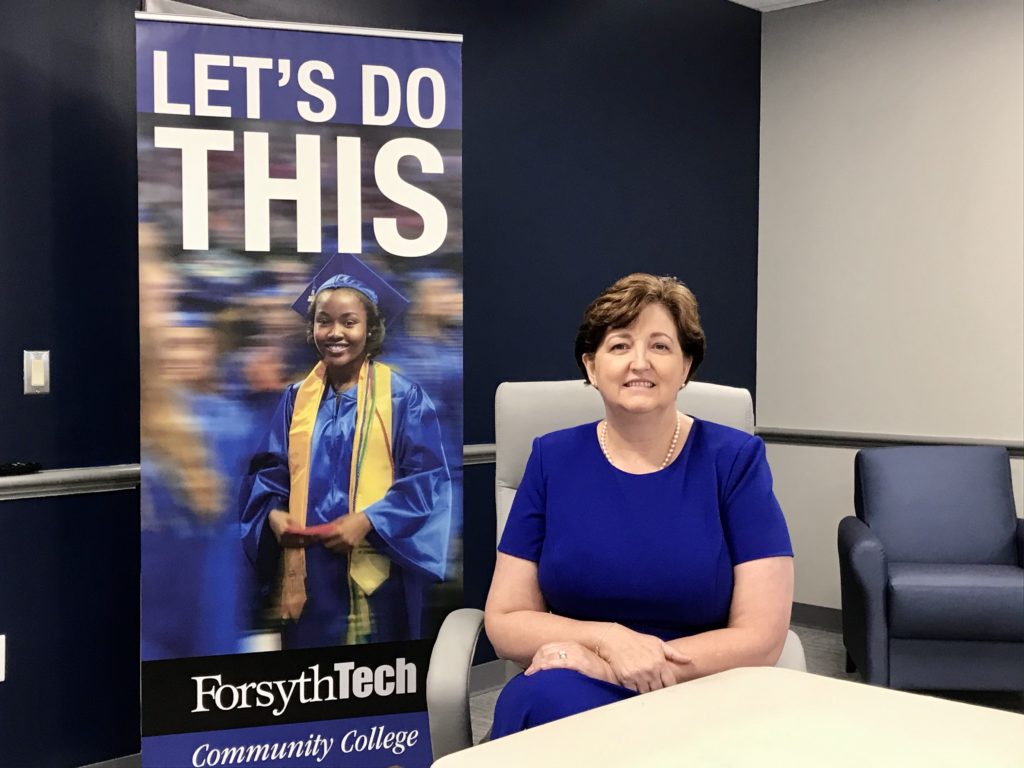
“I will admit, before I did, [Janet] really caught the vision of, you know, this is something that not only could fit with the community college model, but should fit with the community college model,” Philon said.
At the time, Philon was spending most of his energy on the financial and operational side of running the nonprofit. He realized bringing the program to Forsyth Tech would allow him more time to focus on educating kids.
Spriggs announced the move in July, bringing the program, now called College Lift, into Forsyth Tech’s educational partnerships division.
“I just fell in love with the whole premise of the program,” Spriggs said in a recent interview. “It’s one of those things where you listen to how it came about, you hear the stories of the partner program … that this was modeled after, and you think, ‘Why did it take so long to do something like this?’… It just makes sense on so many levels.”
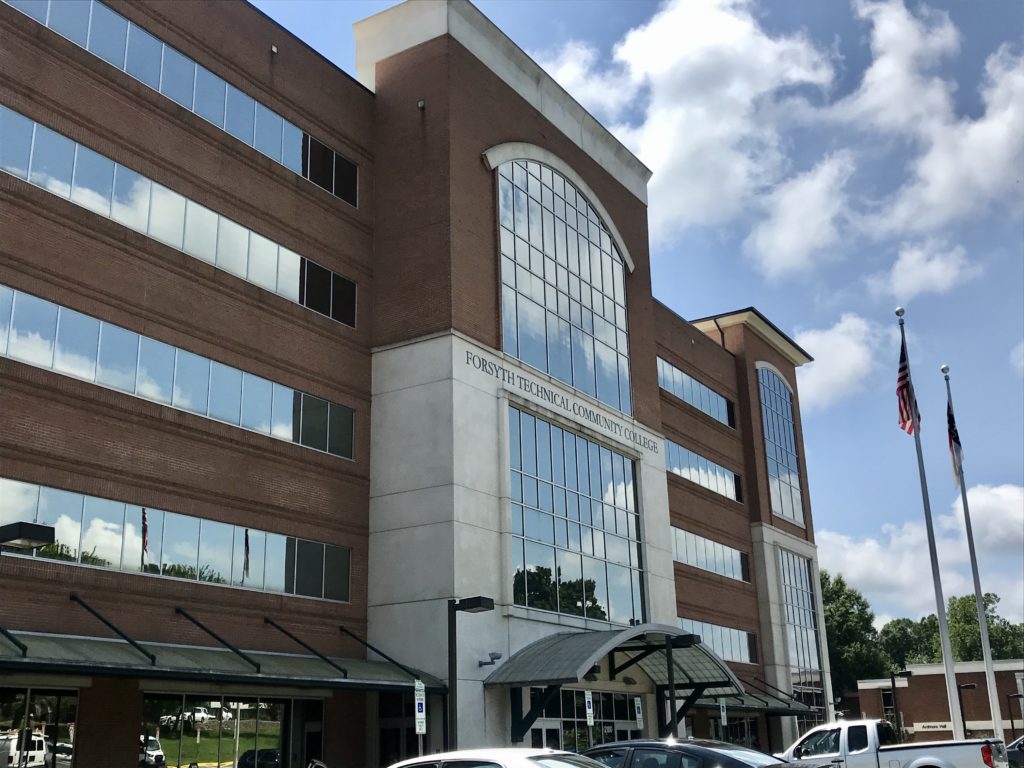
Spriggs continued, “Our shared vision was wrapped in this idea that we may not be able to cure poverty. But we’re going to do our part right here where we are at advancing social mobility and helping students who are in poverty in our service area use the power of education to break that cycle of intergenerational poverty.”
Spriggs appreciates that the program engages families. She sees the possibility of expanding the Family Accompaniment programming to include short-term workforce training at the college for parents who want to gain new skills.
She also sees the value in College Lift students having direct access to Career and College Promise courses through the college while they are in high school.
Philon and Spriggs do not anticipate any major changes to the model at Forsyth Tech beyond exploring educational options for families.
“A model that worked very well at the university level in California I believe will work even better with a community college partner,” Spriggs said, “because we are so tied to the communities and to meeting the needs of the individuals within our communities.”
Measuring their impact
NAI, the USC program College Lift is modeled after, has gained national attention for their success in helping low-income and first-generation students go to college. College Lift hopes to see that same success, but it will take some time to see results.
To measure their effectiveness, College Lift is working with the Data-Sharing Project (DSP) in Forsyth County. DSP is a partnership between Winston-Salem/Forsyth County Schools, Forsyth Futures, and Forsyth Promise to create a “student-centric data sharing platform.”
DSP works with community organizations like College Lift to provide individual student data and help them assess their effectiveness, Philon said. “We get quarterly assessments of the benchmark data … for each student,” he explained. “We have annual reports of the EOGs compared to a control group. We have longitudinal assessments and measures.”
This data lets College Lift see how their students are doing compared to students not in the program. So far, Philon said, the data is looking good. However, the number of students they are serving is still too small, so he is hesitant to make any causal claims about the impact of their program yet.
Spriggs said they will use several measures to assess the impact of the program at Forsyth Tech, including the success of their students both in high school and in college.
“We know for example, the middle school that we’re partnering with currently is a feeder school for the high school in Forsyth County that has the lowest rates for success for high school students — the lowest GPAs as well as the lowest amount of students who go to college,” Spriggs said. “So I think another really important success metric will be that we see the college-going rates for that high school increase and that we see that students who go to college from that high school are more successful as well.”
They will also look at their impact on the families involved, including the number of parents they enroll in short-term workforce training or other education programs at the college.
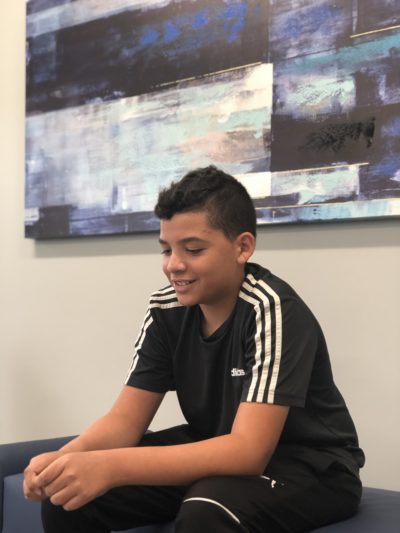
Gustavo, a rising seventh-grader who wants to be an interior designer when he grows up, joined the program last year. He said the Weekend Academy helped him learn faster because the teachers would preview and reinforce the material he was learning in school.
“I felt like we were always one step ahead of the normal class,” he said. “It kind of felt like we were learning faster, and for me that felt great. It felt like we had an advantage.”
He said his grades were improving as a result. “I feel like my grades got better, and they’re going to keep on getting better,” Gustavo said. “And I feel more smart.”
His sister, Angela, said it is easier for her to focus during the Saturday school because there aren’t as many distractions as in her typical classes. She also likes the teachers.
“The teachers, they’re nice, and they care,” Angela said. “They show that they care, so it’s easy to talk to them.”
Looking ahead
With their growth, the move to Forsyth Tech, and promising data coming from the Data-Sharing Project, Philon was excited about the future. However, COVID-19 has forced College Lift to pivot.
“We’re figuring it out as we go,” Philon said. They are meeting with parents, students, and their partners at Mineral Spring Middle School to hear what each group needs. To start, they will focus on making sure their students are keeping up with their regular school assignments.
“There’s a huge gap that’s currently occurring just with student engagement, especially at our Title I schools versus our schools that are non-Title I or private,” Philon said. “If we were to achieve 100% engagement for our students this year, through virtual tutoring and check-ins … and support systems with our families, that alone would be a large accomplishment.”
Philon also said they are focusing on supporting their parents and connecting them to any resources they can.
“This is an unprecedented economic challenge, especially for lower-skill workers and people who are in hospitality and especially people who are first-generation Americans, and that describes a lot of our families,” he said. “So we’re trying to make sure that they’re supported throughout this pandemic as well.”
Behind the Story
Molly Osborne did the reporting and wrote the story. Alli Lindenberg shot the footage and Robert Kinlaw produced the video.

